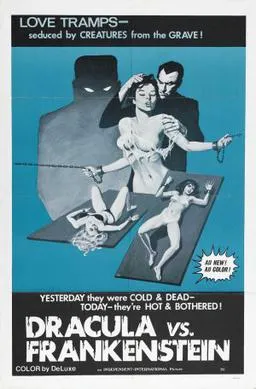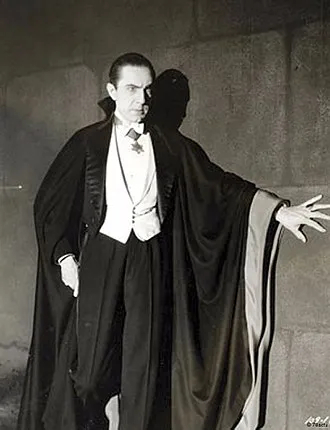Why Has Dracula Endured to Spawn so Many Vampires?
Since I just got inspired to write about Frankenstein on Steemit yesterday, it seems appropriate to write about that other classic horror story that continues to spark our imagination and propel us to lock the doors and leave a light on at night.
If you're interested in Frankenstein, you can find that post here: Remember Frankenstein was the Doctor and Not the Monster.
Frankenstein Vs. Dracula

Source: Wikipedia
The two stories were actually penned generations apart, and they're very different. We might actually have some sympathy for Frankenstein's creature, and if there are moral lessons in Frankenstein, they're more about human pride and lack of accountability. If people would have reacted differently, it's easy to argue that the Frankenstein monster could have been redeemed. The monster in Frankenstein was vile, but he didn't create himself and loathed himself. In the end, he did awful things. Still, his motives were understandable and human.
In Dracula, Bram Stoker never gives us a chance to view the monster as a complex being who could generate a shred of sympathy. Instead, he simply scares the crap out of us and appears entirely evil, corruptive, and frighteningly seductive. Sure, he offers eternal life, mystical powers, and freedom from our fears, but he does it in such an awful way. Hold onto that thought.
How Did Dracula Inspire Generations?
Always lock your castle doors....

The book's Dracula vampire is presented as purely bad. He is not like Anne Rice's sometimes sympathetic monsters. We enjoy the book because we get the same charge out of him as we do any purely bad and powerful villain. Plus, we don't have to waste an ounce of energy feeling sorry for him. He was the original "50 Shades of Grey" guy without the grey.
NOTE: You can read Dracula for free at Project Guttenberg, and I enjoyed revisiting this classic story recently: http://www.gutenberg.org/ebooks/345
Secondly, Bram Stoker may not have been the best writer of all time or even of his own generation. Lots of people argue that Oscar Wilde, HG Wells, and scores of other contemporaries were better with words. Those authors wrote incredible books, but they have not spawned an entire modern mythology the way Stoker did.
Stoker did organize his novel in an interesting way with a shifting, first-person perspective. You read the story through narratives, diaries, and other first-person exposition that give you an urgent sense of actually being there in that time and place.
Would We Pay the Price for Dracula's Gifts?
Beyond sympathizing with Dracula's prey and enjoying a bit of a rush, I think the story endures because of our concerns about the creature we mostly try to bury inside ourselves. Again, what does the monster offer but eternal life and freedom? The price is high. In order to get these gifts, we also have to become irredeemable creatures.
Maybe the really scary thing about the story is that we wonder if we'd be tempted to pay it. As with Frankenstein, the monster is US.
What Do You Think About Classic Horror Tales?
Do you love the classic stories, or have you ever bothered to read them? You might be surprised to find that a lot of the creatures in popular movies and fiction were all bred from these centuries-old stories. Their authors and first audiences may have lived in different times, but maybe all times are the same in certain ways. We're such short-lived creatures, it's hard to say for sure.
I almost always vote on and reply to relevant comments.